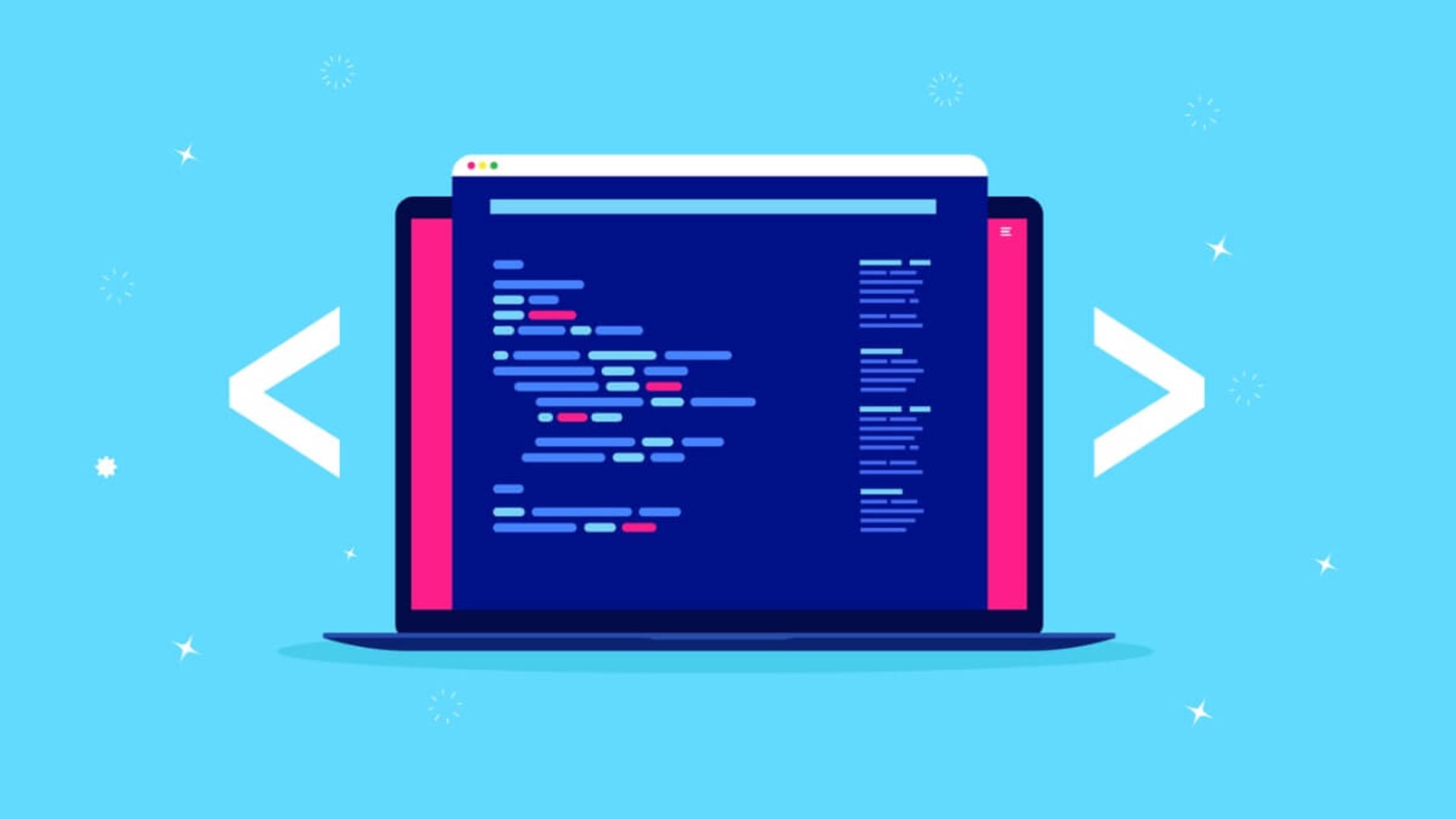- Home
- Technologies
- Go
- Hire Go Developers
Hire Go Developers
Hire vetted Go talent.
Our top 1% of tech talent has already undergone a rigorous vetting process. Get bilingual, nearshore React developers on your team within 2 weeks.
Trusted Go partner to many companies.
No time to find the top talent yourself? Skip the hassle of recruitment.


The Ultimate Guide for Hiring Go Developers
An efficient, scalable programming language, Go has become important for web development, games, and more. Its robust performance makes it well-suited for real-time data processing, command-line applications, and microservices architecture.
It can be difficult to find qualified Golang developers. We’ve hired more than 4,000 tech professionals worldwide, so we know this well. With our experience recruiting the best senior Go developers, we’ve created this guide to support your hiring process. We’ll examine important factors to consider, technical and soft skills to look for, and sample interview questions to ask. You'll feel confident as you hire Go programmers.
Before You Start Hiring
Timeline and Budget
Before interviewing developers, ensure you know your budget, timeline, and limitations. While Go is an especially efficient language, it still takes time to create and refine your project. Do you need a single developer to support your in-house team or a longer-term engagement covering deployment and maintenance? These questions will guide you through your decision-making process.
Niche Experience in Golang Development Services
If you’re building a system that relies heavily on high concurrency or needs a strong foundation in site reliability engineering (SRE), Go is a good choice. Hiring an engineer with demonstrable language experience will add value to your project.
Portfolio and References
Even if they ace the technical assessments, ask to see a portfolio of Go projects or speak to clients or managers they’ve worked with. This will allow you to assess their work first-hand.
Experience in Your Industry
Previous experience in your industry sector is helpful, especially if you’re in an industry that works with sensitive data like healthcare or government. Developers will have learned from prior mistakes or have efficient solutions to common industry problems.
Location and Time Zone
We’ve all started to get more comfortable with asynchronous communication, but when deadlines are tight or something goes wrong, having a developer in a similar time zone can be helpful. Consider what tasks your Golang developers will be doing and if real-time communication is required.
17 Skills Every Go Developer Should Have
Go (or Golang) is a programming language focused on efficiency and high-performance networking. Its use cases are broad and varied, including Internet of Things (IoT) applications, streaming platforms, data processing, and web development.
Go developers need a versatile mix of technical and soft skills. They may need to write a scalable back-end system, build and maintain RESTful APIs, or generate technical documents to assist other teams.
We’ve identified 17 important skills Go developers should have:
Technical Skills to Look for in Your Ideal Go Developer
1. Proficiency in Go Syntax and Patterns
A deep understanding of Go's syntax and idiomatic expressions is crucial. Knowledge of Go's unique patterns like goroutines and channels ensures the construction of efficient and concurrent applications.
2. Experience with Interface and Concurrency
Mastery of Go's powerful interface system and its concurrency model is essential. This enables developers to build scalable and performant systems, leveraging Go's capabilities to the fullest.
3. Understanding of Network Programming
Knowledge of network protocols and experience with network programming are vital for developing robust web services and applications in Go.
4. Familiarity with Microservices Architecture
Experience with designing and implementing microservices in Go is important, particularly for applications requiring scalable and maintainable codebases.
5. Knowledge of Package Management
Understanding Go's package management, including module handling and dependency resolution, assists in maintaining clean and efficient codebases.
6. Experience with Testing and Benchmarking
Proficiency in writing unit tests and benchmarks using Go's built-in testing package is critical for ensuring code quality and performance.
7. Version Control Proficiency
Like any development process, expertise in version control, particularly Git, is essential for collaboration, version tracking, and managing code history.
8. Database Interaction Skills
Skills in interacting with various databases, understanding ORM tools, and writing efficient database queries are important for backend development.
9. Performance Optimization Techniques
Knowledge of performance optimization in Go includes an understanding of profiling tools and best practices in writing high-performance code.
10. Containerization and Cloud Experience
Experience with containerization tools like Docker and deployment in cloud environments enhances a Golang developer's capability to build and deploy scalable applications.
11. Understanding of RESTful API Design
Proficiency in designing and implementing RESTful APIs using Go's powerful standard library and third-party routers ensures the development of efficient and scalable web services.
12. Cross-platform Development Skills
Developers should have the ability to write Go code that is cross-platform compatible, enabling applications to run on various operating systems without modification.
13. Security Awareness
Understanding common security pitfalls in Go and general web security principles is crucial to developing secure applications.
Soft Skills to Look for in Your Ideal Go Developer
14. Critical Thinking
An experienced Go developer should be able to dissect complex problems and logically evaluate different approaches to find the best path forward.
15. Patience
Bugs will happen, and you want a patient, thorough developer to fix them. Rushing to deploy a band-aid fix can cascade into other issues and leave you with suboptimal code.
16. Creativity
An innovative mindset can give you a competitive advantage or reduce maintenance costs down the road. A Golang developer who creates elegant solutions that aren’t immediately obvious is extremely valuable.
17. Reliability
Consistent contributions are critical in development. Your Go developer must be able to deliver and fulfill their responsibilities.
12 Questions to Identify Top Go Developers
When interviewing Go developers, it's important to ask questions that first assess the candidates' technical skills and knowledge. Employers will also usually conduct a coding test to further assess specific on-the-job knowledge.
The following set of questions aim to uncover not only the developer's technical knowledge but also their problem-solving abilities, teamwork, communication skills, and adaptability—all crucial traits for success in a collaborative environment.
Here are a few examples of technical interview questions:
1. How is concurrency handled in Go, and how would you avoid an issue like race conditions?
The core concurrency feature in Go is goroutines, lightweight threads managed by the Go runtime. Different channels must be created for the goroutines to communicate safely, while sync packages like sync.Mutex or synx.WaitGroup are tools for avoiding race conditions.
2. How does Go handle error reporting?
Go has a built-in error-handling strategy based on returning an error type from functions alongside the expected result. I use the predefined errors.New() or fmt.Errorf() to create simple error messages.
3. Describe how to optimize the performance of a Go application with high CPU usage.
The application would need to be profiled with pprof to identify bottlenecks, and the CPU profile would be analyzed to pinpoint functions causing high consumption. Some computations might have to be run in parallel with goroutines, or object pooling might be instituted to reduce allocation overhead.
4. What factors influence your decision between goroutines with channels versus a traditional synchronous approach in Go?
A concurrent solution is best if I/O operations, network communication, or other tasks can run independently without waiting for each other. It leads to performance gains without being excessively complex, though if those gains are minimal, a simple synchronous approach might still be valuable.
5. Why did you choose to specialize in Golang as opposed to other programming languages?
This can reveal the Golang developer’s motivation, preference for Golang's simplicity, performance, and specific use cases they are passionate about.
6. How do you ensure that your Golang applications are performant and efficient?
This question addresses the candidate's understanding of Golang's performance features, profiling tools, and strategies for writing efficient code.
7. How do you handle feedback, especially when asked to make changes to your code or approach?
This can shed light on the candidate's adaptability, communication skills, and ability to handle constructive criticism.
8. Have you ever worked in a multi-disciplinary team with designers, backend developers, and other stakeholders? How did you ensure smooth collaboration?
This question explores the candidate's team collaboration skills and their approach to integrating Golang solutions with other parts of a project.
9. Can you describe a challenging project you worked on using Golang? What were the challenges and how did you overcome them?
This gives insight into the candidate's problem-solving skills, experience with Golang's unique challenges, and their ability to navigate complex projects.
10. What are some tools or practices you use to test your Golang applications?
Understanding the developer's approach to testing can provide insights into their commitment to quality and familiarity with Golang's testing frameworks.
11. How do you keep yourself updated with the latest updates in Golang and its ecosystem?
This question assesses the candidate's commitment to continuous learning and staying current with new Golang features and community best practices.
12. Can you describe a time when you had to make a trade-off between perfect code and meeting a deadline? How did you handle it?
This reveals the candidate's practicality and decision-making in time-constrained environments, balancing code quality with business needs.
FAQ
Are there any particular industries or projects where Golang excels?
The Golang programming language is particularly effective in industries requiring high performance and scalability such as tech, finance, and cloud services. It's well-suited for building microservices, large-scale distributed systems, and network servers due to its concurrency support and efficient memory management.
What are the long-term benefits of integrating Golang into our technology stack?
Integrating Golang can lead to improved application performance, increased software developer productivity due to its simplicity, and lower costs from efficient resource utilization. Its strong community support and growing ecosystem mean your tech stack remains modern and maintainable.
What are the strategic considerations in building a team Golang development team?
Consider your project's scalability, performance needs, and maintenance requirements. Evaluate the current skills of your software engineering team to ensure a smooth integration of Golang. It's also crucial to understand the availability of top Golang developers and consider investing in training for long-term development capabilities.
What should I look for in dedicated Golang developers?
Look for strong problem-solving skills, proficiency in Golang syntax and libraries, understanding of concurrent programming, and experience in developing scalable systems. A good grasp of other software development technologies in your stack and effective communication skills are also important.
How does Golang compare to Java?
When evaluating Golang vs Java, it's clear that Golang stands out for its simplicity, speed, and efficient memory usage. It's tailored for today's computational demands, particularly in areas like concurrency and network services, often resulting in quicker, more streamlined performance. On the flip side, Java boasts a vast library ecosystem and is a go-to for complex, large-scale enterprise applications. Ultimately, the choice between Golang and Java hinges on your specific project requirements and what's already in place infrastructure-wise.
How is Golang used in the development of web services, and what are its advantages?
The Go programming language is favored for the development of complex web applications due to its fast execution, concurrency support, and simple syntax, ideal for scalable RESTful APIs, and microservices. Its robust standard library, memory safety, and efficient resource use make it a top choice for building a reliable, high-performance web application.
Is Golang a popular choice across the software development industry?
Yes, Golang is a popular choice in the software development industry for its performance and efficiency. Its simplicity and powerful concurrency tools make it ideal for modern applications, driving demand to hire Golang developers for diverse and scalable projects.
What are important considerations when looking to hire remote Golang developers?
When you're looking to hire a Golang developer to work remotely, important considerations include verifying their technical expertise in Golang, understanding their experience with remote work, assessing communication and collaboration skills, and ensuring they have a reliable work setup. It's also crucial to align on work hours, cultural fit, and project management tools to ensure a smooth and productive working relationship.

How Businesses Can Overcome the Software Development Shortage
BairesDev Ranked as one of the Fastest-Growing Companies in the US by Inc. 5000








